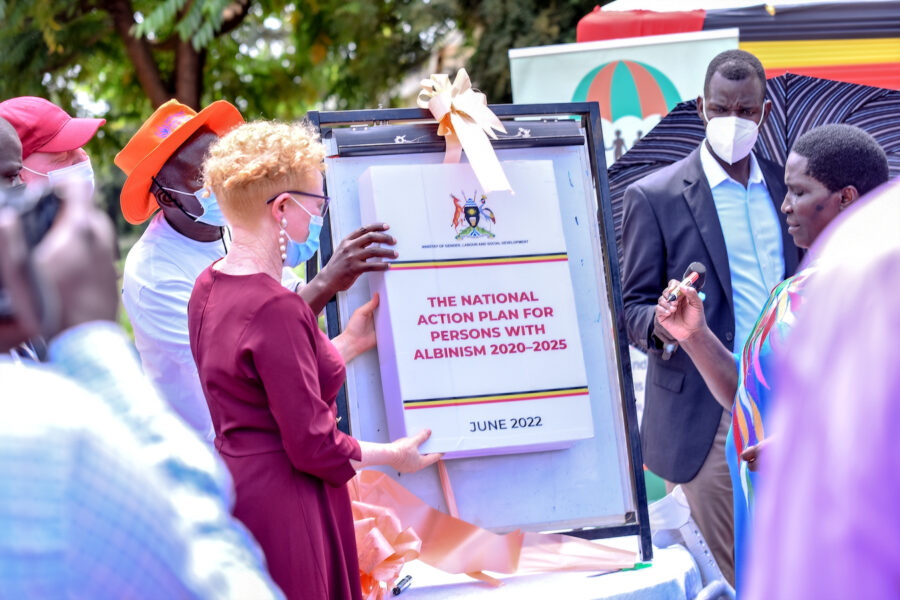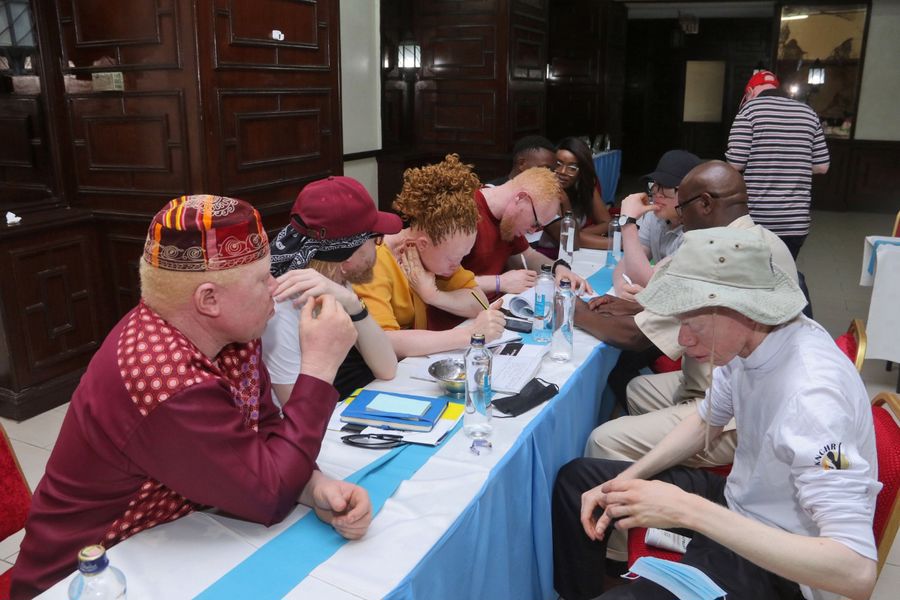The Africa Albinism Network works with like-minded entities to prioritize human rights-based support for persons with albinism in Africa and influence action in response to the challenges faced by persons with albinism and their family members.
Human Rights Defenders with Albinism
The United Nations Independent Expert on Albinism categorically states that albinism group leaders must self-identify and be recognized as human rights defenders to avail themselves of effective protection. Echoing the UN Special Rapporteur on human rights defenders, without this recognition, human rights defenders with albinism remain unaware of their rights as defenders, do not have access to peer or other support networks, and do not receive protection from the State, civil society, or the international community.
A Groundbreaking Survey
AAN’s 2022 survey across 48 African nations revealed that 70% of albinism groups are actively involved in human rights-based advocacy, including measures to address ritual attacks, highlighting the crucial role these groups play in challenging perceptions and defending the rights of people with albinism.

Women Impacted by Albinism
Women impacted by albinism – including women with albinism and mothers of children with albinism – face layered oppressions, both gender-based and due to their identity as people with albinism. They are often abandoned by their spouses due to the stigma surrounding albinism, blamed for having a child with albinism, endure discrimination in healthcare, and experience acute vulnerability to ritual attacks and rape, based on the belief that having sex with a woman with albinism cures HIV/AIDS. Ensuing economic challenges and workforce barriers keep women impacted by albinism in cycles of poverty and social exclusion. Despite this dire situation, there has been an alarming dearth of advocacy specifically targeting the unique challenges faced by women with albinism.

Climate Change & Albinism
Climate change poses an existential risk for people with albinism. Across the African continent, a staggering 90% are estimated to lose their lives by age 30 due to skin cancer. Deforestation directly impacts people with albinism – as the tree canopy disappears, they are more exposed to the sun’s harmful rays. The UN also reports that people with albinism frequently work outdoors due to early dropout from school from lack of reasonable accommodation and bullying. With a majority of people with albinism living a subsistence lifestyle outdoors, the impact of climate change on their health and in consequence, their socio-economic status, has become dire.